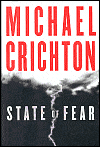Tsunami...again...
Well...the death toll took another staggering leap and is now over 120,000 and most sources on the ground are saying the final toll won't be known for weeks to come. Other than pandemics, this event seems to be heading towards the worst in terms of lives lost...ever.
Millions of people on Indian Ocean shores scrambled for food and clean water as disease, thirst, hunger and panic threatened survivors of the world's most lethal natural disaster since a cyclone in Bangladesh killed 138,000 people in 1991.
Beyond the loss of life, an estimated 5 million people have been left without basic necessities (food, clean water, shelter, basic medical care). Relief efforts are well underway, but once again, U.S. leadership seems to be a day late and a dollar short, and other than CNN (via Reuters), the U.S. media is still basically ignoring the landmines story in Sri Lanka.
Nestled near a border dividing the north between government forces and Tamil Tiger rebels, the area around the small fishing village of Point Pedro -- devasted by giant tsunami waves on Sunday -- is now littered with plastic landmines uprooted by floodwaters.
"There are land mines spread all over. Many of them have moved, hundreds are floating," said Sinnathurai Kathiravelpillai, a district medical officer working near Point Pedro.
Mine disposal units estimate there are around one million mines scattered mostly around northern Sri Lanka, a legacy of a bloody two-decade civil war that killed 64,000 people until a ceasefire three years ago.
For the first 2 days after the disaster, the only major public figure from the U.S. to be seen speaking, offering condolences, or just indicating that we care at all about the rest of the world was Bill Clinton (from the Washington Post, via Daily Kos).
In Britain, the predominant U.S. voice speaking about the disaster was not Bush but former president Bill Clinton, who in an interview with the BBC said the suffering was like something in a "horror movie," and urged a coordinated international response.
...
Some foreign policy specialists said Bush's actions and words both communicated a lack of urgency about an event that will loom as large in the collective memories of several countries as the Sept. 11, 2001, attacks do in the United States. "When that many human beings die -- at the hands of terrorists or nature -- you've got to show that this matters to you, that you care," said Leslie H. Gelb, president emeritus of the Council on Foreign Relations.
There was an international outpouring of support after the attacks on the World Trade Center and the Pentagon, and even some administration officials familiar with relief efforts said they were surprised that Bush had not appeared personally to comment on the tsunami tragedy. "It's kind of freaky," a senior career official said.
...
Gelb said what appears to be a grudging increase in effort sends the wrong message, at a time when dollar totals matter less than a clear statement about U.S. intentions. Noting that the disaster occurred at a time when large numbers of people in many nations -- especially Muslim ones such as Indonesia -- object to U.S. policies in Iraq, he said Bush was missing an opportunity to demonstrate American benevolence.
"People do watch and see what we do," he said. "Here's an opportunity to remind people of the good we do, and he [Bush] can do it without changing his policy on Iraq or terrorism."
...
Among the world's two dozen wealthiest countries, the United States often is among the lowest in donors per capita for official development assistance worldwide, even though the totals are larger. According to the Paris-based Organization for Economic Cooperation and Development of 30 wealthy nations, the United States gives the least -- at 0.14 percent of its gross national product, compared with Norway, which gives the most at 0.92 percent.
President Bush has once again hidden himself away at his ranch for yet another vacation, where apparently brush clearing (how much brush is there to clear, really...he's gonna have that ranch clearcut by the time he's done) and bicycling take priority over...hmmm...being the leader of the free world. (Wish I could take time off like he does)
Juan Cole (Professor of History at U.Mich) (also via Daily Kos) notes on his blog:
As John F. Harris and Robin Wright of the Washington Post cannily note, US President George W. Bush has missed an important opportunity to reach out to the Muslims of Indonesia. The Bush administration at first pledged a paltry $15 million, a mysteriously chintzy response to what was obviously an enormous calamity. Bush himself remained on vacation, and now has reluctantly agreed to a meeting of the National Security Council by video conference. If Bush were a statesman, he would have flown to Jakarta and announced his solidarity with the Muslims of Indonesia (which has suffered at least 40,000 dead and rising).
Indeed, the worst-hit area of Indonesia is Aceh, the center of a Muslim separatist movement, and a gesture to Aceh from the US at this moment might have meant a lot in US-Muslim public relations. Bin Laden and Zawahiri sniffed around Aceh in hopes of recruiting operatives there, being experts in fishing in troubled waters. Doesn't the US want to outflank al-Qaeda? As it is, the president of the United States is invisible and on vacation (unlike several European heads of state), and could think of nothing better to do than announce a paltry pledge. As Harris and Wright rightly say, the rest of the world treated the US much better than this after September 11.







